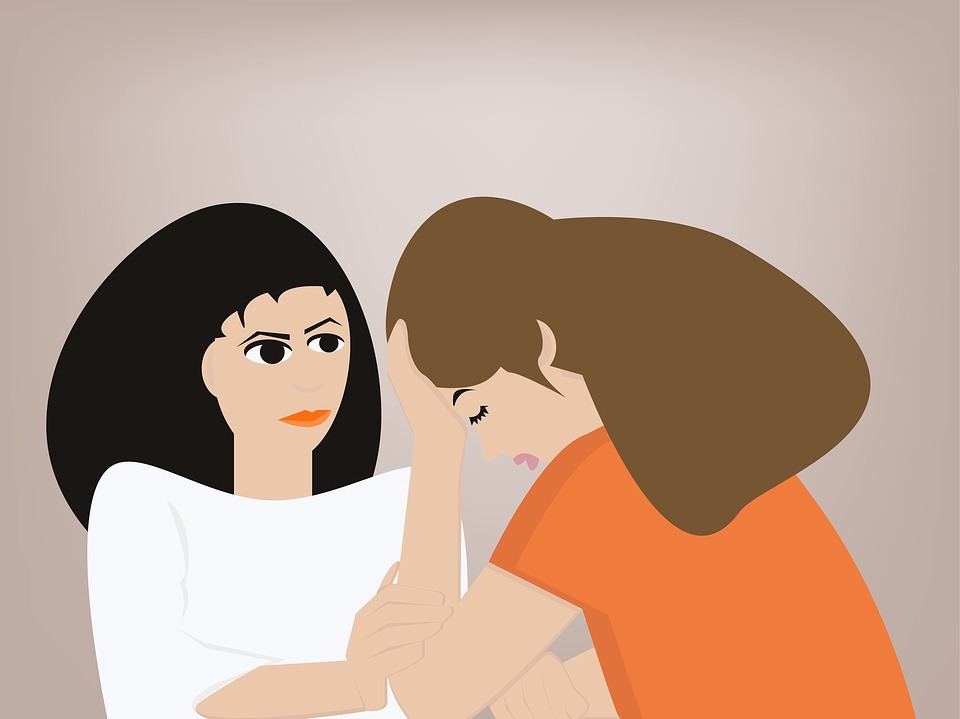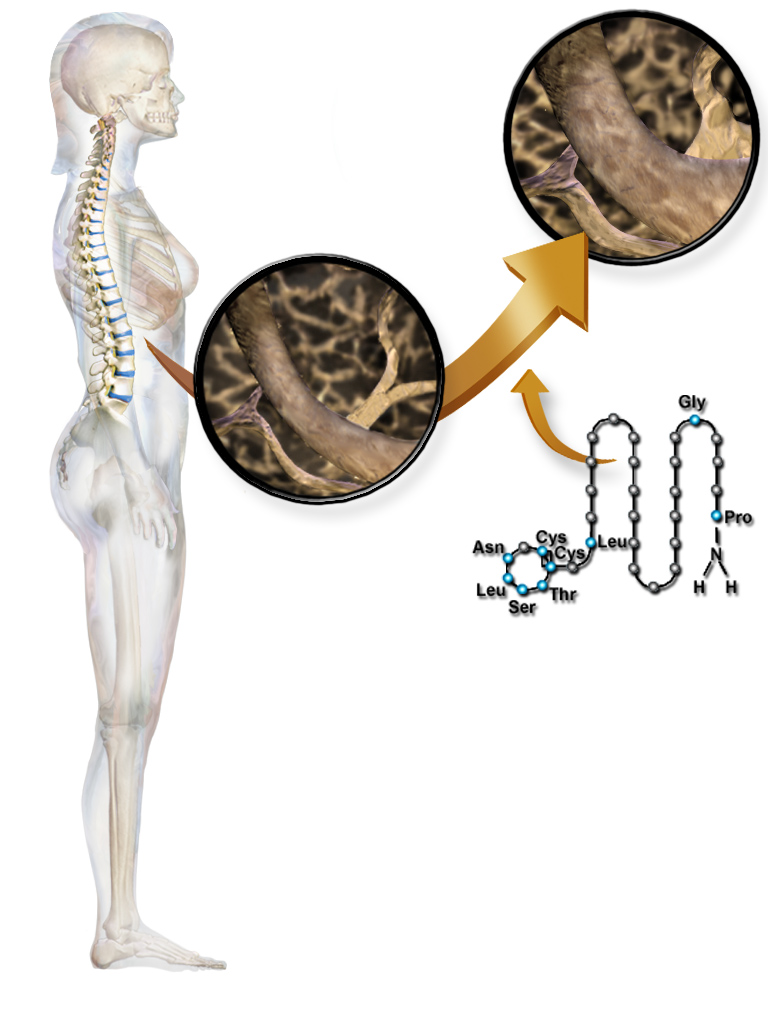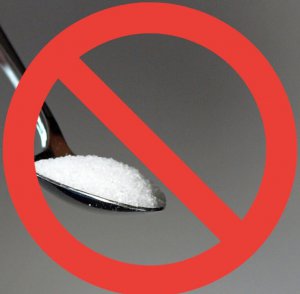Confronting Thyroid Problems (Follow Up): Total Thyroidectomy After Effects And Natural vs Conventional Recovery Options
So, you have reached the crossroads with a thyroid disorder where the diagnosis regarding your condition requires you to make an unfortunate decision to undergo a total thyroidectomy. Your next order of business is to contemplate how you are going to live out the rest of your life after a complete removal of your thyroid gland.
In the United States, thyroidectomies are most commonly performed on patients who have been diagnosed with thyroid cancer. In other cases, this surgery is performed on patients diagnosed with an enlarged thyroid(goiter) or hyperthyroidism/graves disease.
In this follow up report we are going to examine the after effects of a total thyroidectomy procedure as well as explore logistics of making a prudent decision as to natural versus conventional recovery treatments and long term regimens.
Post Thyroidectomy After effects:
In my last post I briefly covered scenarios such as, how severe hypothyroidism, hyperthyroidism or thyroid cancer often lead to a recommendation to have a thyroidectomy. In light of the fact you no longer have a thyroid, that gland is not available to produce those vital hormones(T3 and T4). So, it would make sense that you are now by definition hypothyroid(under producing or in this case not producing those hormones anymore). Of course, this fact is also applicable to those who had the surgery due to a hyperthyroid(graves disease) condition(excessive production of hormone) as well.
Other conditions that can occur:
- damage to the recurrent laryngeal nerves (nerves connected to your vocal cords)
- damage to the parathyroid glands (glands that control the level of calcium in your body)
Note: If you are having a feeling of nervousness or feeling jittery, this would be a symptom to watch for as it is a sign of low calcium. In which case, you should contact your doctor.
There are many forums and message boards in which to get a perspective on post op side/after 
I noticed a number of comments in the link above from those that are still suffering from fatigue, brain fog and depression 5+ years later. Now, Is this solely from the absence of a thyroid or the medications they are on? A number of commenters in the link above and elsewhere suggest that it can take over a year just to get the dosage right. Also in the above link, many of the commenters were prescribed Synthroid(Levothyroxine).
Which brings us to conventional treatments/medications.
Conventional treatments/medications:
Synthroid(Levothyroxine) seems to be the choice thyroid medication prescribed by physicians and endocrinologists. If you haven’t watched the video testimony of a “former Levothyroxine user” from my last post. I would highly recommend watching it through. In fact, here is the direct YouTube link as there are many comments that can offer deeper insight into this medication.
If you are insistent on taking this hormone replacement drug(taking into account that in all likelihood, this is what your physician/endocrinologist will prescribe), this video will give further instruction on how and when to take it: Note: I would suggest going to the the actual YouTube page with this one as well, so as to read the comments of other patients.
Something else to take into consideration with taking Levothyroxine is that, it is a replacement hormone for T4 only. There are cases where issues such as mineral deficiencies, gastrointestinal problems and liver problems can inhibit the conversion from T4 to T3. read more here
I was told by a naturopathic trained doctor that diabetes can be a factor as well.
![By Starvee44 (Own work) [CC0], via Wikimedia Commons](https://situationalwellness.com/wp-content/uploads/2017/10/800px-Thyroid_hormone_pills_-_left_T3_-_right_T4.jpg)
Natural Remedies and Dietary Considerations:
The are a number of natural thyroid hormone replacements on the market if one chooses to go that route right away or switch due to the side effects from the above mentioned conventional ones. These are referred to as Natural Desiccated Thyroid(NDT) products. These products have been used for more than a century with much success.

NDT is derived and mixed from, not one, but several pigs and comes in a powdered form. It meets very strict US Pharmaceutical standards. Unlike the conventional/synthetic meds mentioned above(which are exclusively T4 andT3 replacements), NDT provides all the the hormones that a properly functioning thyroid would provide. Those are: T1,T2,T3,T4 and calcitonin(the body needs this element to pull calcium from the blood and put in the bones). Read more on the important functions of these hormones, as well as a list of NDT products and other info here.
Now, there are considerations to take into account if you plan on moving from a synthetic hormone replacement like Levothyroxine.
Example:
- It is recommended that you take your Levothyroxine a final day then start on NDT the next day
- Start with a dose of one grain then raise the dose 1/2 a gain every two weeks barring negative symptoms along the way. In which case, is likely from a deficiency in iron and or a cortisol issue
- When the dose is up to 2 grains it is recommended to have labs done and make ensuing adjustments accordingly
- Its common to wind up between the 3-5 grain bracket when reaching the optimum dosage(some more, some less)
For thyroid cancer(thyca) patients who have had a total thyroidectomy this link will provide further perspective(including testimonials) on the use of NDTs.
Video: Here is an interesting testimony from a thyroid cancer sufferer that I believe is well worth 50 minutes of your time. She recommends a couple books and other information to arm your knowledge base with, that may be beneficial:
You can get the 3 aforementioned books from the video above here:
Video: Woman healed from re-occurant thyroid cancer at the Hoxsey Biomedical Clinic in Mexico:
There are sites that offer natural remedies specific to those who have had a thyroidectomy and are feeling like they just aren’t functioning properly. This one provides a phone number and a free online consultation. see here
Post Thyroidectomy Diet:
I would suggest that in many cases your food consumption habits will have to change in order to reach a stage of optimum wellness in the recovery process after your thyroid has been removed. Of course there are exceptions like the woman in the above video who, in her case, was on a very healthy diet and was still afflicted with thyroid cancer. However, if you are someone who are or was consuming fast food, processed foods, sugary foods and beverages(soft drinks) ect… you should seriously consider eliminating or minimizing those items.
In the case of sugar laden foods and beverages, if you are a recovering thyroid cancer patient, it’s important to know that sugar is one of cancer’s best friends and just makes sense, that if you want to mitigate the chances of re-occurrence then sugar is out.
So, on that note, lets look at some ideas that may provide further insight on what foods and other elements you should avoid and foods beneficial for a substantial diet:
Recommendations on what to avoid:
- Fluoride and chloride
- sugar(especially if recovering from thyroid cancer)
Cut back on:
- Brussels sprouts
- peaches
- pears
- cabbage
Note: As for the 4 foods mentioned above, there are different schools of thought on whether or not these foods should be incorporated into a diet. These goiterogenic foods(including broccoli and kale) interfere with the thyroid’s ability to function properly but, if you no longer have a thyroid, this may or may not be an issue. The type of thyroid replacement meds your on (whether it be synthetic or NDT) should be worked into the equation as a determining factor. This is a decision that you should consult with your doctor on.
Recommended foods beneficial to a post thyroidectomy diet:
- Foods rich in vitamin c
- Foods rich in zinc
As I covered earlier in this report, you now have what essentially amounts to a hypothyroid condition since your thyroid has been removed. So with that said, revisiting my last post on a dietary plan and supplementation could be beneficial to providing further insights. This may take some experimentation to get a regimen tuned in. In one of my earlier posts I briefly covered starting a food journal. This way you can log what your consuming on a day to day basis and and self monitor how to feel to gain a more sound judgement on what works for you and what doesn’t.
Dr. Axe’s hypothyroid diet plan is worth a gander as well. See here
Also, here is a Q and A that could provide further insight on a practical diet for addressing post thyroidectomy weight gain: How to lose weight after thyroidectomy?
Final Thoughts and Observations:
As i stated in my last post, having a family member who is experiencing this situation is a strong motivation for me in writing this follow up. I have, since that post, learned more on her condition(thyroid cancer and a subsequent thyroidectomy).
If you, a family member or loved one is going through this plight, (i won’t sugar coat it) I’d suggest, seriously taking some time to, not only read this post but, look at the sourced links, videos and cross reference them to fortify yourself with enough knowledge to make a sound decision. I will emphasize once again the importance in deliberating this information with your doctor.
However, on a personal note, I would suggest that solely taking your doctor’s word on every recommendation he offers(especially if he stonewalls you on every contrary alternative that you consult with him on) may not always be the best choice. If this turns out out be the case, look at getting a second opinion(as i have mentioned in other posts). I would submit that in many cases, even though medical doctors have the training and means to diagnose and monitor your condition as well as perform life saving surgeries, they are trained in medicine and not so much on giving the body the tools to heal and or recover naturally. As the pharmacist in the video above said “medical doctors are trained by the pharmaceutical reps.”
So, with that said, i would implore you to please do your own homework along the way. If you have a spouse, family member or loved one who is experiencing the psychological symptoms of a post thyroidectomy(depression, mood swings, brain fog(concentration lapses) ect….) it may be incumbent upon you or someone else very close to that individual to do the research or at least assist in that process.
Of course we all have busy lives but, this is just one of many degenerative health problems that i can’t overstate enough about the importance setting aside some time to be informed through at least some self reliant education. One of my motivational objectives in this report is to do some of the heavy lifting to help in that decision making process.
I would also suggest invoking God(A.K.A. Source) through the power of prayer as I mentioned in the previous post. Calling upon the Most High for the right answers is never a bad choice and like I have said before, there are no side effects. Not to mention, that is a remedy that can produce miracles and I do believe strongly in miracles. I have seen them manifest in my personal life.
Lastly:
A quick disclaimer: I am not not an expert or professional on this matter. I want those reading this post to know these are merely findings and observations that I have taken the time to research, put together and present. My hopes are, that the information will provide some semblance of value and direction to make a sound and informed decision.
Resources:
https://www.healthline.com/health/thyroid-gland-removal#procedure4
https://stopthethyroidmadness.com/natural-thyroid-101/
https://stopthethyroidmadness.com/thyroid-cancer-and-ndt/
https://stopthethyroidmadness.com/armour-vs-other-brands/
https://www.pinterest.com/pin/82401868160700812/
https://www.paleohacks.com/weight-loss/how-to-lose-weight-after-thyroidectomy-9940
Featured Image Attribution: By Max Brödel (http://pages.jh.edu/jhumag/0400web/34.html) [Public domain], via Wikimedia Commons
![By haitham alfalah (Halfalah (talk) 17:43, 30 July 2008 (UTC)) [Public domain], via Wikimedia Commons File:MIVAT.JPG](https://upload.wikimedia.org/wikipedia/commons/thumb/2/2d/MIVAT.JPG/800px-MIVAT.JPG)
![By Jkwchui (Based on drawing by Truth-seeker2004) [CC BY-SA 3.0 (https://creativecommons.org/licenses/by-sa/3.0)], via Wikimedia Commons](https://upload.wikimedia.org/wikipedia/commons/thumb/6/64/Recurrent_laryngeal_nerve.svg/512px-Recurrent_laryngeal_nerve.svg.png)


Thank you for this very detailed post on the after effects of thyroidectomy.
Our Lab. Tech. supervisor had a thyroidectomy about 10 years ago, before I started working with her in the same company. Bits and pieces she would share with us how and why she had to undergo the said procedure. I cannot recall her telling us the exact reason but every after lunch she would bring out her medicine pill box and take 2-3 different tablets: her thyroid medicine, calcium supplement and one for her bp maintenance. She tests her TSH regularly and also her zinc.
I didn’t understand why she needed to take calcium supplements and I also never asked her but after reading your post, I now know why.
I also often test my TSH because I know stress could cause thyroid problems as I have seen among my colleagues, and thank God it’s always turns out normal. However, one of my colleagues loves to tease me about my fast metabolism. She said I should minimize my consumption of cabbage because it might affect my thyroid function, which in effect is keeping me from my goal of putting on some weight.
Do you also recommend avoiding cabbage and sprouts to people with normal thyroid functions as a preventive measure?
Preventivly, if it were me, I would limit the consumption of goiterogenic foods like cabbage. Especially if it is raw. By cooking these types of vegetables you can cut down the goierogenic effects by about 2/3s. I have a list of goiterogenic foods foods to avoid if you are hypothyroid in my first post on thyroid problems. However if one is hyperthyroid the intake of these type of foods probably should be increased according to the research i’ve done. I wouldn’t eliminate these foods entirely as there are a lot of nutritional benefits. Anyway take a gander at my previous post on thyroid problems. Will give you more perspective on your question. Thank you much for the comment, God bless
Didn’t know much about thyroids, some good information always willing to learn.
Great looking site.
Thanks Fred. Great stuff on your site as well
This is such a thorough, well-researched information. My husband has Hypothyroidism and is currently under Levothyroxine. He seems to be doing well with it so far but claims that if he hasn’t taken it for a long time, he can certainly feel the difference (especially emotion). I did not know anything about Thyroidectomy, and certainly do not wish we have to go through this, but this information truly helped me to understand this issue and some alternative.
Thank you so much.